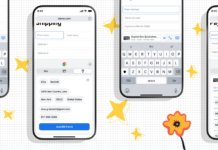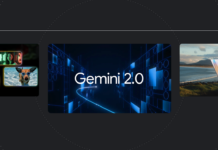
Reading Time: 3 mins
Companies in the United States allocate a staggering $15 billion annually towards talent acquisition. One of the critical metrics in recruitment advertising is the conversion rate from a paid click on a job platform to the actual application received by the employer. On average, the industry sees a mere 5% conversion rate for applications. The primary reason for this low conversion rate is the redirection of candidates from the job platform to the company site, which causes a significant drop-off, with a 70% bounce rate at this step.
In a recent episode of NVIDIA’s AI Podcast, Noah Kravitz, the host, had an engaging conversation with Mikhil Raja, the Cofounder and CEO of SonicJobs. SonicJobs has developed AI Agents that allow candidates to complete their applications directly on the job platforms, eliminating the need for redirection and thereby increasing the completion rate from 5% to an impressive 26%.
Raja detailed how SonicJobs leverages advanced technology, combining traditional artificial intelligence (AI) with large language models (LLMs) to effectively understand and navigate job application workflows on various websites. He also highlighted the critical role of fine-tuning foundational models to realize more impactful and scalable innovations.
SonicJobs is part of the NVIDIA Inception program, a support initiative designed to help startups during critical stages of product development, prototyping, and deployment.
Key Discussion Points
Why Applying for a Job is Stuck in a Web 1.0 Era
At the 1:19 mark, Raja discusses why the job application process remains outdated and cumbersome, referring to it as a "Web 1.0 experience." Despite technological advancements, many job platforms still redirect candidates to company websites to complete applications, causing high dropout rates. SonicJobs aims to modernize this process with its AI Agents, which streamline the application process by allowing candidates to apply directly on the job platform.
The Technology Behind SonicJobs
At 6:06, Raja provides an in-depth explanation of how SonicJobs’ technology works and the benefits it offers to both users and companies. By integrating traditional AI with LLMs, SonicJobs’ AI Agents can understand and interact with different job application workflows, making the process seamless and efficient. This innovative approach not only enhances user experience but also significantly improves conversion rates for employers.
Evolution of AI Agents
At 9:03, the conversation shifts to the evolution of AI Agents. Initially inspired by AutoGPT, SonicJobs has since evolved to provide specialized B2B solutions. This verticalized approach allows for more tailored and effective AI applications, addressing specific needs within different industries.
Realizing the Right Approach
At 11:33, Raja shares how SonicJobs identified the optimal approach for their Agentic AI. Through extensive research and development, the company fine-tuned its models to ensure accuracy and scalability, resulting in a robust solution that can adapt to various job platforms and application processes.
Scaling and Adaptive Learning
At 15:18, Raja discusses how SonicJobs is scaling its AI Agents and the concept of the adaptive learning flywheel. This involves continuously improving the AI’s performance by learning from each interaction, making the system more efficient and effective over time.
Importance of Fine-Tuning
At 17:45, the importance of accuracy and the need for fine-tuning foundational models are emphasized. Raja explains that fine-tuning is crucial for achieving high performance and scalability, ensuring that the AI Agents can handle diverse and complex application workflows.
Framework for Verticalized AI Solutions
At 20:45, Raja outlines a framework for how SonicJobs’ verticalized AI Agent solutions can be applied to other industries. This approach allows the company to create specialized AI applications that address the unique challenges and requirements of different sectors.
Hiring Advice
At 23:23, Raja offers advice to companies currently looking to hire. He emphasizes the importance of streamlining the application process to reduce dropout rates and improve conversion rates. By leveraging AI technology, companies can enhance the candidate experience and attract top talent more effectively.
You Might Also Like…
How Georgia Tech’s AI Makerspace Is Preparing the Future Workforce for AI – Ep. 229
Georgia Tech’s new AI Makerspace is equipping tens of thousands of students with the skills needed to excel in the AI-driven workforce. Arijit Raychowdhury, a professor and chair of electrical engineering at Georgia Tech, discusses how the school’s supercomputer hub provides students with the resources to gain hands-on experience with AI.
How Roblox Uses Generative AI to Enhance User Experiences – Ep. 227
Roblox, an online platform known for its immersive experiences, is now leveraging generative AI to enhance user interactions. Anupam Singh, vice president of AI and growth engineering at Roblox, explains how the company uses AI for features like automated chat filters and real-time text translation.
Performance AI: Insights from Arthur’s Adam Wenchel – Ep. 221
Adam Wenchel, cofounder and CEO of Arthur, shares how the company improves AI system performance across various metrics, including accuracy, explainability, and fairness. He also discusses the challenges and opportunities of deploying generative AI.
Media.Monks’ Lewis Smithingham on Enhancing Media and Marketing With AI – Ep. 222
Lewis Smithingham, senior vice president of innovation at Media.Monks, talks about the creation of Wormhole, an AI-powered, conversational robot designed to provide marketing expertise. He explores AI’s potential to transform media and entertainment.
Subscribe to the AI Podcast
Stay updated with the latest episodes of the AI Podcast by subscribing through your favorite platform:
- iTunes
- Google Play
- Amazon Music
- Castbox
- Overcast
- PlayerFM
- Pocket Casts
- PodBean
- Soundcloud
- Spotify
- Stitcher
- TuneIn
Help improve the AI Podcast by filling out this listener survey.
For more details, visit the NVIDIA AI Podcast.
For more Information, Refer to this article.


































